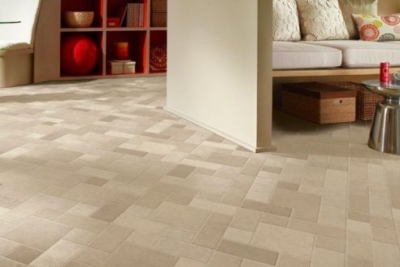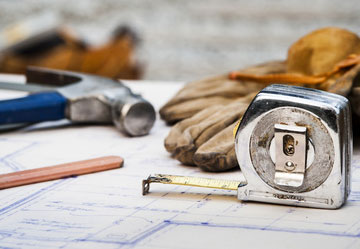Best Residential Finished Basement Flooring Materials
 Before a homeowner chooses the flooring material for their basement remodeling contracting project, they must first consider what they want to use the space for. Is it going to be a home office, a family room, a home gym, a man cave? Will they often be sitting on the floor with the family pet or will small children be running around?
Before a homeowner chooses the flooring material for their basement remodeling contracting project, they must first consider what they want to use the space for. Is it going to be a home office, a family room, a home gym, a man cave? Will they often be sitting on the floor with the family pet or will small children be running around?
Plus, when working on a below-grade basement refinishing project, flooring considerations take on the added dimension of moisture, flooding, mold and mildew. Is this a new house or an older home? When considering flooring for a below ground level project, it is often in the customer’s best interest to favor inorganic flooring materials such as stained concrete or vinyl. But some finished basement flooring requires construction practices that include subflooring, which includes laminated flooring materials and mold-resistant carpeting.
As a professional basement remodeling contractor, talk the project through with your homeowner and ask detailed questions about what they are looking for. Also consider the customer’s real budget when deciding on which flooring to install. We all know that each of these decisions is unique to each homeowner.
- Popular basement remodeling flooring materials include:
- Engineered Vinyl Planks or Tiles
- Rubber Flooring – Interlocking Gym Tiles
- Engineered Hardwood
- Ceramic or Porcelain Tiles and Plank Flooring
- Carpet
Basement Remodeling Construction Projects
When choosing flooring materials for a basement finishing project, choose the option that best fits the homeowner’s needs and budget. There are always the inevitable trade-offs, and you need to go over the functions and factors for the finished basement that are important to the customer, while weighing the projects budget options carefully. Always make sure the customer considers both long and short-term costs.
Related: Lighting Ideas for Your Basement Remodeling Project
Choosing flooring for a basement renovations project can be challenging to say the least. Often there are unique considerations that will keep you from using flooring materials you might be inclined to use in above-ground residential construction, ruling out such materials as hardwoods, certain laminates, cork, and other materials. Using a moisture meter can be extremely helpful in determining which basement flooring options you can work with and which you can’t.
You’ve Got Questions. We’ve Got Answers.
For homeowners reading this article, if you are unsure what to do or have questions, it is always best to speak with a professional home and basement renovations contractor or specialist who has years of experience with such projects. They can thoughtfully guide you and help you understand the pros and cons of different flooring materials you may be considering along with their pros and cons for your specific property.
If you’re planning a basement remodeling or basement finishing project, and want to look at all your options, contact the home improvement design professionals at Secor. You can call us at (315) 365-2838. We are always happy to set up a time when we can talk in-depth about your project and help you turn your dreams into realities for you and your family.

